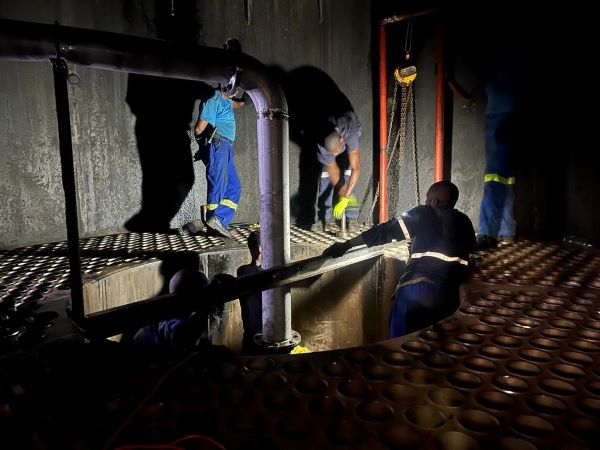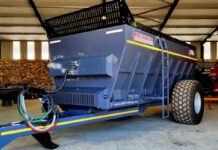Benefits of new Dimple Tube technology – developed by Bosch Projects to enhance production capacity of vacuum pans – can be seen in recent installations at sugar mills in KwaZulu-Natal.
The Bosch Projects research and development team has designed and developed advanced Dimple Tube technology to optimise equipment productivity, reducing batch pan cycle time, improving pan floor capacity and reducing operational costs.
“By integrating dimple tubes into batch and continuous vacuum pans, there are significant improvements in processing capacity, through more efficient evaporation rates, heat transfer coefficient, energy usage, massecuite circulation and enhanced crystal quality and exhaustion,” explains Murray Stevens, Sugar Sector Director for Bosch Holdings. “The first pan – completely fitted with newly designed dimple tubes – was installed recently at a sugar mill on the North Coast and is starting to show improved performance. The Bosch Projects team is currently on site gathering the operational data to assess in detail the impact these tubes have had on the pan.
“In a current project at another mill, a vacuum pan on refined massecuite is being fitted with dimple tubes. New tubes are installed every week on ‘stop’ days, highlighting ease of installation of this system. The design of dimple tubes is compatible with existing equipment for retrofit applications, which means that simple and inexpensive upgrades are possible, with minimal/zero vessel modifications.
“Our newly developed dimple tube technology increases the heating surface area of an existing vacuum pan by approximately 15% and improves the turbulence and heat transfer characteristics, compared with conventional smooth walled tubes.
“Although this technology has been developed for process equipment within the sugar industry, the new design provides a cost-effective alternative to the conventional means of increasing equipment capacity and improving energy efficiency in various other sectors where shell and tube heat exchangers are utilised.”
The original concept has been developed, analysed and tested for over three years, through rigorous engineering processes and tests. An in-house automated manufacturing system, coupled with a stringent quality management system, ensures high levels of product customisation, quality control and consistency.
As part of the company’s extensive testing programme, this technology was installed into an existing batch pan and has been operational for three seasons. Separate laboratory test results showed an increase in evaporation rates of over 50% at the start of batch vacuum pan cycles and over 20% towards the end of batch vacuum pan cycles. This means an overall batch vacuum pan cycle time improvement of over 30% was achieved, which significantly enhanced pan floor capacity.
Another benefit is a slight decrease in graining volume, unlike an increase in graining volume which is normally found with competing technologies. Lower graining volume reduces initial thermal inertia at the start of the pan cycle, which significantly improves overall pan floor performance.
The Bosch Projects team integrates engineering technology and project management, to provide customised solutions in diverse industries. These sectors include sugar and ethanol, power utilities and materials handling, commercial and industrial projects.
The company has a network of offices in Africa, South and Central America, Australia and the United Kingdom. The company also has technology partners in the Southeast Asia region and the USA, as well as agents in several regions across the globe.








